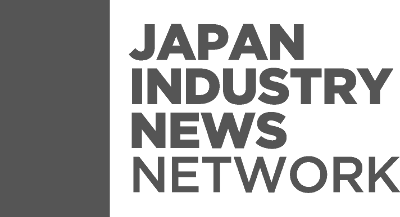The CxO’s Headache
In March 2006, I was in a meeting room with a local CFO of a leading European company. My colleague and I were invited to discuss how they can increase their profit by improving the way they buy things.
There were two issues causing a headache to the firms CFO.
First, no one in the procurement team could objectively tell if they buy at the best price. There was no supplier market visibility nor any scientific understanding on the key cost drivers dominating the price.
Second, the company’s headquarters challenged him every quarter, with regional benchmarking as their weapon, as to why Japanese suppliers are so expensive.
It was the very first meeting of my consulting career, and I was curious if such headaches were specific to this client or if they are the rule rather an exception.
About a decade past, I am now absolutely sure that the same issue is common more or less at the vast majority of foreign companies’ subsidiaries in Japan.
In fact, I have never met a CxO who is happy with the performance of his or her procurement team.
Procurement in Japan is 10 years behind
It is often said that “Procurement in Japan is 10 years behind in comparison to Western countries.” This notion is unfortunately widely accepted, with Toyota being one of the few exceptions.
The reason for this is rooted in the mindset of Japanese management that does not consider procurement a key profit driver. Instead it is seen as a mere cost center like accounting, legal, or human resources.
So, buyers are not expected to act strategically, but to just place orders without mistakes.
Although more and more Japanese top managements are realizing the importance of strategic procurement, it will take quite some time for the Japanese HR market to start producing high performance buyers. The trend has only recently been started.
What are the implications for you?
The question to ask however is not, “Why does Japanese procurement not perform sufficiently?” The right question should be “What are the implications for you?” and “What can you do to improve the condition?”
My advice is twofold.
For one, do not even think of hiring someone with a career in buying when you try to strengthen your procurement function.
The best way is to hire a high performance business person or an engineer without procurement background. Then let him or her learn about procurement afterwards. If the person has good analytical skills and the quality to enjoy leading change, he or she will learn the key success factors for procurement within one year.
In my experience, the other way around will almost certainly end up with inefficiencies. And it may take a very long time for your hire to start performing. This conclusion is based on my personal experience as a global consulting firm’s Managing Director who has interviewed hundreds of candidates over the decade. And my friends working for brand firms like Boston Consulting Group or McKinsey are facing the same issue when they try to hire procurement experts.
Secondly, do a quick diagnosis on your procurement process. You need to understand which parts of your procurement-related infrastructure you have to improve so that your procurement team can perform to the best of its abilities.
To keep it simple I have listed the three most important aspects.
(1) Time spent for strategic tasks
Ask each procurement manager what percentage of their time they spend for “strategic tasks.” If the average of all managers is less than 30 percent, it means that your buyers are going to a gunfight, price negotiation, carrying only a knife.
Strategic tasks are, among others, supplier market surveys, cost driver analyses, action plan (strategy) building, RFP (request for proposal) design, or Design To Cost activities.
If your buyers are busy with non-strategic tasks such as requesting quotations or placing orders to the same supplier for many years, something has to be changed.
You may for example consider simplifying the approval process for long tail spends by creating an advanced price matrix using statistical analysis. The matrix approach is quite useful and I may explain it in more detail in a future column.
(2) Coverage
Check roughly what percentage of the spend goes through procurement. Ideally about 80 percent of your company’s total spend should be negotiated by trained buyers, not by marketers or engineers.
This is important for two reasons; avoiding conflict of interest and developing professional expertise. If the procurement coverage of your organization is less than 50 percent, you should launch a step-by-step project to make it 80 percent.
(3) Cross-functional activity platform
Innovative cost reduction ideas can be generated when your design team, procurement team, and suppliers are sitting together for brainstorming.
It is a top management responsibility to encourage your design team to prioritize such activity, as it is usually very difficult for procurement teams alone to initiate this activity.
First of all, check if your company has cross-functional brainstorming activity. Then incentivize your suppliers well by promising them sufficient reward if they contribute and the risk of losing part of their business if they do not.
Last but not least, focus only on one or two key cost drivers when cross-functional teams conduct brainstorming sessions. An Any-Ideas-Are-Welcome type of attitude is generally very inefficient and does not result in a sufficient cost reduction. Instead, the procurement manager has to pre-analyze the spend category of interest to identify the key cost drivers prior to inviting suppliers.
During the meeting, the procurement manager has to facilitate discussions so that all participants are focused and thinking Out-of-the-Box at the same time.
Procurement pays
If you are new to Japan and still discovering where to start improving your organization, procurement may be a field which offers excellent prospects to increase efficiency. Acquire a leading competitive advantage for your corporation through procurement transformation.
Good luck.



No comments yet.